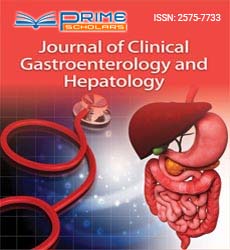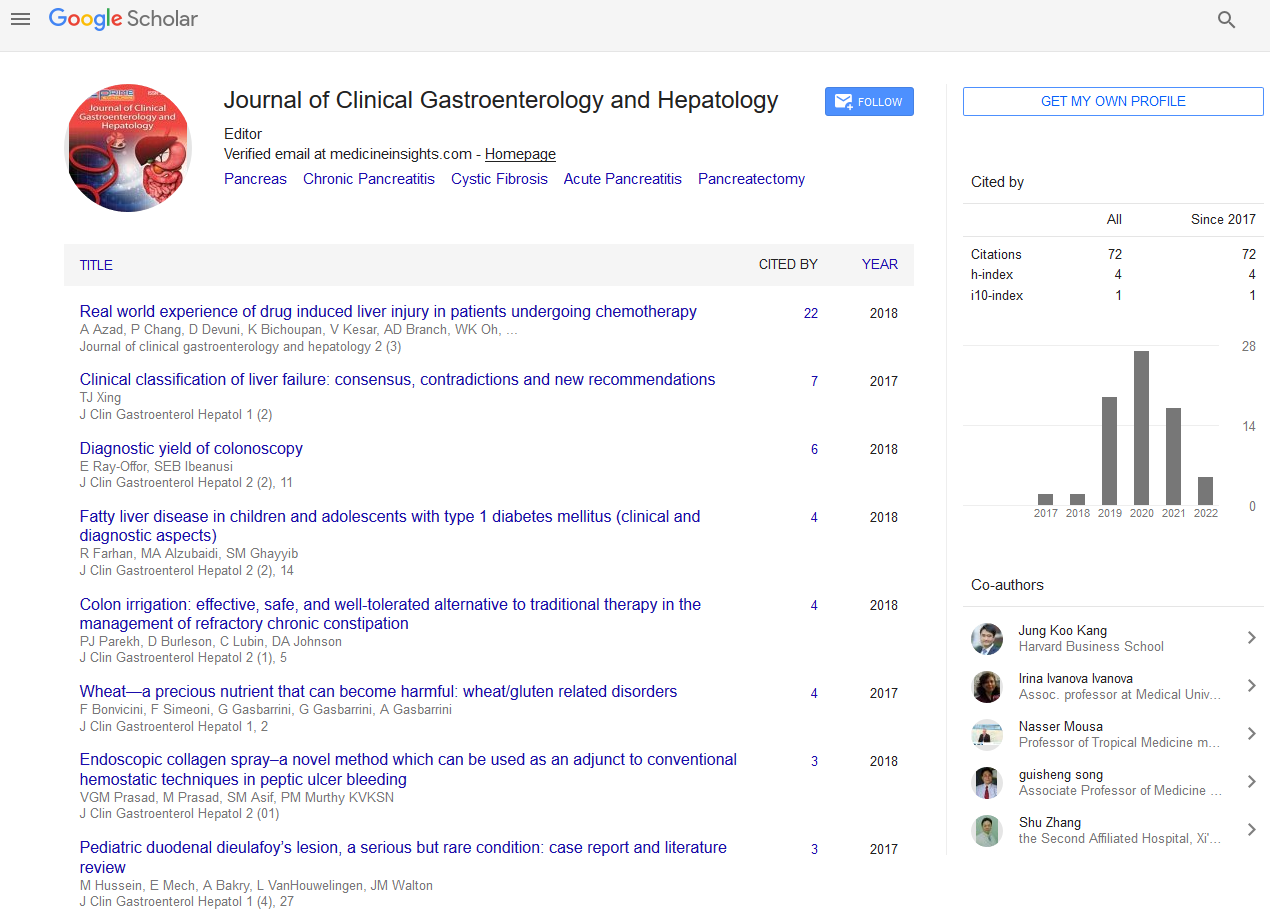Short Communication - (2024) Volume 8, Issue 1
Understanding Gastrectomy: Surgery for Stomach Cancer
Keiko Abe*
Department of Gastrectomy, Kyoto University, Japan
*Correspondence:
Keiko Abe,
Department of Gastrectomy, Kyoto University,
Japan,
Email:
Received: 31-Jan-2024, Manuscript No. IPJCGH-24-19079;
Editor assigned: 02-Feb-2024, Pre QC No. IPJCGH-24-19079 (PQ);
Reviewed: 16-Feb-2024, QC No. IPJCGH-24-19079;
Revised: 21-Feb-2024, Manuscript No. IPJCGH-24-19079 (R);
Published:
28-Feb-2024, DOI: 10.36648/2575-7733.8.1.03
Introduction
Gastrectomy, a surgical procedure involving the partial or
complete removal of the stomach, is a significant treatment
option for individuals diagnosed with stomach cancer. This
invasive intervention aims to eradicate cancerous cells, alleviate
symptoms, and potentially extend patients’ lives. As with any
major surgery, understanding the procedure, its implications,
and the recovery process is crucial for patients and their loved
ones. Gastrectomy can be classified into several types based
on the extent of stomach removal. In this procedure, only a
portion of the stomach containing the tumor is removed,
while the rest of the stomach remains intact. This approach is
typically employed when the cancer is in its early stages and
has not spread extensively [1,2].
Description
As the name suggests, total gastrectomy involves the complete
removal of the stomach. This procedure is necessary when
the cancer has spread extensively throughout the stomach
or if there are multiple tumors present. Also known as distal
gastrectomy, this procedure involves removing the lower
portion of the stomach, leaving the upper part intact. It is often
performed when the cancer is located in the lower part of the
stomach. Gastrectomy is a complex surgical procedure that
is typically performed under general anesthesia. The surgeon
makes an incision in the abdomen to access the stomach and
carefully removes the diseased portion of the organ. In some
cases, nearby lymph nodes may also be removed to prevent
the spread of cancer. After removing the affected tissue, the
surgeon reconnects the remaining portion of the stomach to
the esophagus or small intestine, depending on the type of
gastrectomy performed. This allows for the continued passage
of food from the mouth to the digestive tract, albeit with some
alterations in digestive function. While gastrectomy can be lifesaving,
it is not without risks. Some potential complications
associated with the procedure include. Excessive bleeding
during or after surgery is a risk, which may necessitate blood
transfusions or additional surgical interventions. Like any
surgical procedure, gastrectomy carries a risk of infection at
the incision site or within the abdominal cavity. In some cases,
the connections made between the remaining portion of the
stomach and the digestive tract may leak, leading to infection
or other complications. Following gastrectomy, patients may
experience digestive issues such as nausea, vomiting, and
diarrhea. These symptoms may improve over time but can
have a significant impact on quality of life. This condition occurs
when food moves too quickly from the stomach into the small
intestine, leading to symptoms such as weakness, sweating,
and dizziness. The recovery period following gastrectomy can
vary depending on the extent of the surgery and the overall
health of the patient [3,4].
Conclusion
In the immediate postoperative period, patients are typically
monitored closely in the hospital to ensure that they are healing
properly and to manage any pain or complications. Once
discharged from the hospital, patients will need to adhere to a
strict diet and lifestyle regimen to support their recovery. This
may include consuming small, frequent meals to aid digestion,
avoiding certain foods that may exacerbate symptoms, and
gradually increasing physical activity as tolerated. In addition to
physical recovery, patients may also require emotional support
to cope with the psychological impact of gastrectomy.
Acknowledgement
None.
Conflict Of Interest
The authors declare that they have no conflict of interest.
References
- Correa P (2013) Gastric Cancer: Overview. Gastroenterol Clin North Am. 42(2):211-7.
[Crossref] [Google Scholar] [PubMed]
- Chia NY, Tan P (2022) Molecular classification of gastric cancer. Ann Oncol. 27(5):763-9.
[Crossref] [Google Scholar] [PubMed]
- Ang TL, Fock KM (2014) Clinical epidemiology of gastric cancer. Singapore Med J. 55(12):621-8.
[Crossref] [Google Scholar] [PubMed]
- Puliga E, Corso S, Pietrantonio F, Giordano S (2021) Microsatellite instability in Gastric Cancer: Between lights and shadows. Cancer Treat Rev. 95:102175.
[Crossref] [Google Scholar] [PubMed]
Citation: Abe K (2024) Understanding Gastrectomy: Surgery for Stomach Cancer. J Clin Gastroenterol Hepatol. 8:03.
Copyright: © 2024 Abe K. This is an open-access article distributed under the terms of the Creative Commons Attribution License,
which permits unrestricted use, distribution, and reproduction in any medium, provided the original author and source
are credited.

